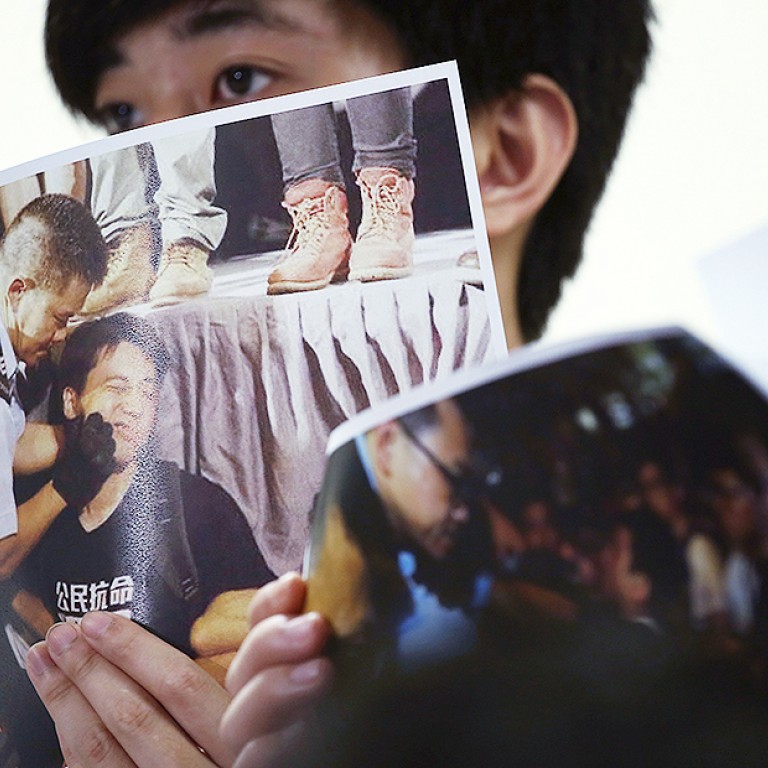
Students blast police for 'mainland terminology' used by officers during Chater Road sit-in
Police accused of being involved in 'political suppression' by using mainland-style term
A leading student group has criticised police officers for using a mainland-style phrase - which is regularly used as grounds for arresting activists on the mainland - when dealing with last week's Chater Road sit-in.
The students hit back as a second association representing disciplined services officers, the Customs and Excise Staff General Association, issued a statement yesterday in support of strict enforcement by police.
Last Sunday, the Junior Police Officers' Association used the phrase, often translated into English as "provoking quarrels and making trouble", to describe the sit-in protesters.
The criminal charge is regularly used against political dissidents and protesters on the mainland, but is non-existent in Hong Kong laws.
"By using this mainland terminology, police are turning themselves into state machinery of political suppression," Alex Chow Yong-kang, secretary general of the Federation of Students, said yesterday.
In Sunday's statement, the officers' association said frontline officers faced "vilification" and accusations of abusing their power when handling the Chater Road sit-in.
Chow stressed that the sit-in, which had hundreds of participants, was entirely peaceful.
Officers had used "unnecessary force" to incapacitate peaceful demonstrators, he added.
The federation yesterday also accused the police of infringing on the rights of some of the 511 people arrested during the Chater Road protest, in particular denying them access to lawyers for as long as four hours, a right guaranteed by law.
The first group of arrested protesters were brought to a temporary detention centre at the Police College in Aberdeen, where nine lawyers were already waiting outside.
But the federation said that police instead asked them to find a lawyer from a phone directory passed to them, and would not let the nine lawyers in to see the detainees.
Police insisted that protesters provide the names and identity card numbers of the lawyers, said Lester Shum, the federation's deputy secretary general.
Police have also been accused of leaving arrested protesters on coaches for several hours without water before transferring them to the police college, and not providing food for six hours after their arrest.
Chow said that the federation would discuss potential legal action against the police with lawyers.
Police have yet to respond to the allegations.

